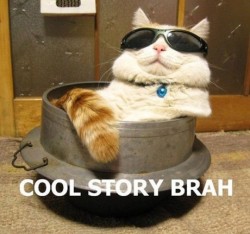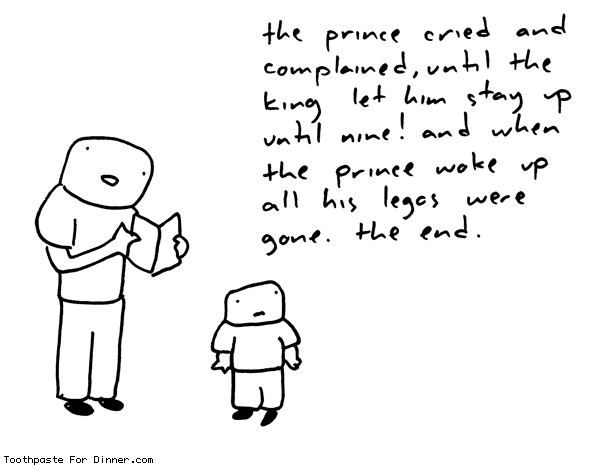6. Reading is a necessary life-skill.
 Leaders are readers. Read lots of stuff. Blogs, books, magazines. Read the best stuff in your area. Read fiction. Read bestsellers. Read classics. Read books you’re pretty sure you’re going to disagree with. Just read. Seriously. It’s a skill you can develop.
Leaders are readers. Read lots of stuff. Blogs, books, magazines. Read the best stuff in your area. Read fiction. Read bestsellers. Read classics. Read books you’re pretty sure you’re going to disagree with. Just read. Seriously. It’s a skill you can develop.
It just occurred to me that, if you’re reading this, I’m probably preaching to the choir.
7. There is such a thing as good literature. Dan Brown, Stephanie Meyer and Tim LeHaye are not it.
If you’re reading, I’m so glad. But please read good books. Not the trash that gets pawned off as literature. Yes, I’m a snob about good books and I will never apologize for it. The world is packed full of good books, so you don’t ever need to waste your time with crap. I’m sure I just offended tons of people, but see above: on this issue, I will not apologize.
Do. Not. Read. Bad. Books. It’s actually okay to get into a book and quit because it’s not a good book. I had to learn this lesson the hard way. Do yourself a favor and do the work of finding and reading good books.
8. Good stories are hard to find.
 Not because there are so few, but because there’s so much clutter out there (see #7). Good stories transport us outside our small worlds and to a place that’s bigger than we can imagine on our own. They show us ourselves at our best and worst. They’re mirrors that show us our true selves (because let’s face it: we all need help with that).
Not because there are so few, but because there’s so much clutter out there (see #7). Good stories transport us outside our small worlds and to a place that’s bigger than we can imagine on our own. They show us ourselves at our best and worst. They’re mirrors that show us our true selves (because let’s face it: we all need help with that).
Here are some of my favorite stories: The Chronicles of Thomas Covenant, Anansi Boys, The Dark Knight, The Shawshank Redemption and Bram Stoker’s Dracula.
9. Good story-tellers can make anything interesting and worthwhile.
Seriously. Good story-tellers make even the most mundane activities or scenes burst with life and energy. They use words to unveil a reality that you see has been there all along, you just couldn’t see it. They show you the magic that imbues even the very mundane and ordinary. And they make it look easy, but it’s not. It’s not a gift… it’s a carefully cultivated skill.
Some of my favorite storytellers: Stephen R. Donaldson, Neil Gaiman, Stephen King, Johnny Cash,
10. You can learn to be a good story-teller.
It’s true. What looks like magic is actually blood, sweat and lots of tears. We are hard-wired for stories, so there are some basic skills anyone can develop to become a better story-teller (and –hearer for that matter). Donald Miller has been working quite a bit on this lately, and has tons of great suggestions about how to become a better story-teller. Here’re some books I also highly recommend if you want to work on this!
Resonate – Nancy Duarte
Made to Stick – Chip and Dan Heath
Communicating for a Change – Andy Stanley

 I don’t usually get weird about birthdays, but a couple weeks before I turned 30 (on October 23), it hit me that – arbitrary or not, 30 is a pretty big milestone. Since then, I’ve been wondering what I’ve learned in my first 30 years of life. Here’s what I’ve come up with, 5 at a time!
I don’t usually get weird about birthdays, but a couple weeks before I turned 30 (on October 23), it hit me that – arbitrary or not, 30 is a pretty big milestone. Since then, I’ve been wondering what I’ve learned in my first 30 years of life. Here’s what I’ve come up with, 5 at a time!


